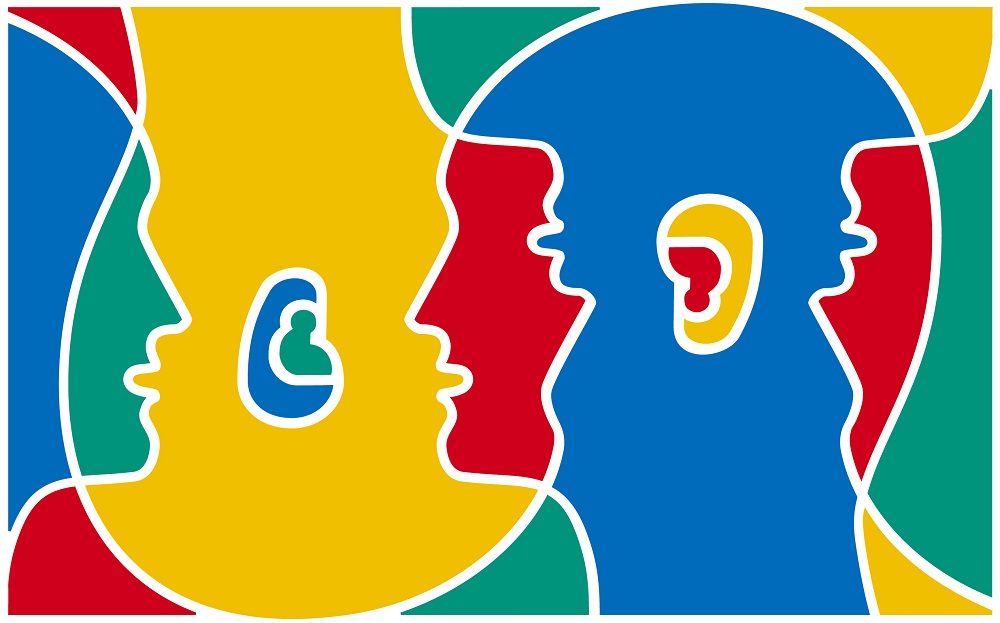To mark the 20th anniversary of the European Day of Languages on 26 September, the Skills Centre's Head of Foreign Languages and Italian national, Isabella Stefanutti, shares some fun facts about European languages and why language-learning is a fantastic skill to develop.
Can you read this?
Aoccdrnig to a rceearsh sudty, it deosn’t mttaer in waht oredr the lteters in a wrod are; the olny iprmoatnt fatcor is taht the frist and lsat ltteres are in the rghit pclae. Tihs is bcuseae the huamn mnid deos not raed ervey lteter by istlef, but the wrod as a wlohe.
Isn’t the ability to understand languages great?
If you're not bilingual yourself, you might be surprised to learn that more than half of Europe is! That’s a lot of people! No wonder that in 2001 the Council of Europe launched an initiative to celebrate the European Day of Languages on 26 September each year. This year the initiative is 20 years old.
Linguistic diversity is a key element in the rich cultural heritage of Europe and being able to speak languages is a great tool for achieving intercultural understanding. It’s also lots of fun and, when you travel, speaking the language of the locals can open many doors, metaphorically and literally!
Famous polyglots
Linguistic and intercultural skills are also very important when applying for a new job and for success in your career. Don’t believe me? Novak Djokovic is passionate about languages and has said that ‘the more languages you know, the more is your worth as a person’. He speaks fluent Serbian, English, French, German, Italian and can get by in various other languages. He is currently ranked as the best tennis player in the world, and is worth a considerable amount, so he is definitely true to his belief!
(You can find out lots of other celebrity polylinguals, like Gwyneth Paltrow, Natalie Portman and Shakira, and the languages they speak, on the EDL website.)
More facts
Do you know how many languages are spoken in Europe? There are 47 member states of the Council of Europe... many people are bilingual… so maybe you're guessing around 50? Well, 50 is way off!
In fact there are about 225 indigenous European languages, and many more languages are spoken by citizens whose family originates from other continents. (Incidentally, European languages make up only a small percentage of the estimated 6,000-7,000 languages spoken in the world!)
A few more fun facts about Europe's languages:
- The Silbo language of La Gomera, Spain, is an ancient whistling language and is still taught in local schools today.
- Euskara, the Basque language, is believed to be one of the oldest European languages.
- The Czech letter ř is said to be one of the most difficult letters to pronounce in the world (except if you're Czech!)
- The mother tongues spoken by most people in Europe are Russian, German, French, English and Turkish, in that order.
You can find out more facts, idioms, palindromes, longest words, tongue twisters and unique words in different European languages on the EDL website.
Get involved
If you'd like to learn a foreign language, there's a fantastic opportunity to do so at the University of Bath through the Skills Centre. You can take a course in a new language or pick up a language you already know where you left off.
And if you'd like to celebrate the 20th anniversary of the European Day of Languages (#coeEDL), there are lots of ways to get involved:
- Take part in the EDL Great Bake-Off
- Participate in the EDL international happy birthday video
- Design the official 2022 EDL T-shirt
We'd love to hear what you get up to!
Most of all, languages enrich your life, so just enjoy learning and speaking them!
(Featured image courtesy of the Council of Europe.)
Respond



